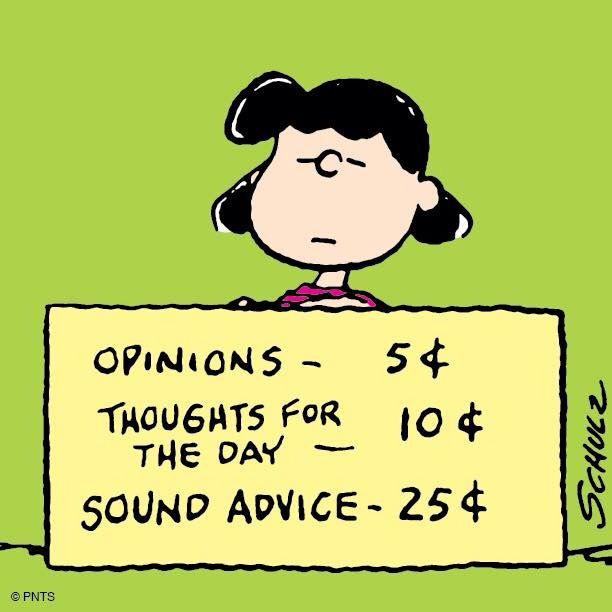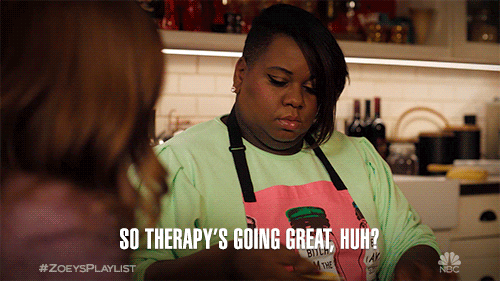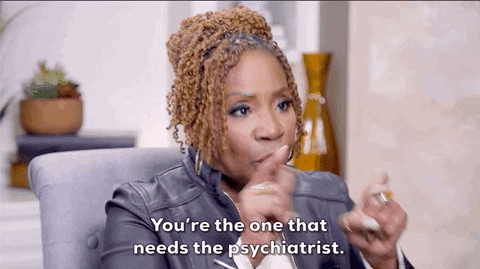How to Break Up With Your Therapist
We're back! The Advice Column.
Babes!
We haven’t done an advice column in a while. The energy required to create solutions for anyone else’s problems but my own was simply…not there! Considering the ginormous savior complex I once harbored, I’d call this growth. Regardless, I have really missed this part of the newsletter and would love to get back into it. I’m dropping the link to submit any and all queries, dilemmas, and lover’s quarrels anonymously and in absolute confidence here. There is no situation too strange or uncomfy.
SUBMIT SUBMIT SUBMIT!
Anyway, I have been having some reoccurring conversations recently about breakups of all kinds - romantic, friendship, familial - and I noticed the relationship none of us really understand how to end is the therapeutic one. As someone who has seen and left several therapists since I started going to therapy in 2016, I have made my fair share of weird exits in the name of avoidance and all advice given here will be sourced from trial and mostly error. Considering my first relationship with a therapist ended with me storming out of the office on my third session and never returning, the fact that I have a challenging and soul-giving relationship with my therapist now seems like a miracle.
It’s kind of awkward, right? To bare your soul to someone, build rapport and trust, come to a place of such vulnerability that you are comfortable sobbing over Zoom each week, and then never speak to said person again?? It’s something you literally want to talk to a therapist about. At the beginning of 2021, I initiated a heartbreaking breakup with a therapist I had grown very attached to and have since gone through a few mental health professionals before finding my wonderful therapist and unsung hero, Pam.
Here’s what I’ve learned:
Not all therapists are good therapists. Don’t ignore red flags. Therapists are people - they can be racist, they can be overbearing, they can be judgmental, they can be manipulative, they can be unsafe, and they can be Republican. I’ve had therapists literally deny the reality of systemic racism, tell me to “get over” abuse, and accuse me of being too sensitive. Not all therapists are made the same and it’s important to listen to your intuition and advocate for the care you need and deserve. If a therapist is not open to criticism about a dynamic that could potentially cause harm long-term - it’s time to jet, babe!
2. You can like your therapist and still need to grow elsewhere. The point of therapy is to be challenged beyond your old coping mechanisms, grieve and make peace with trauma, exist as a healthy counter in strong relationships, and achieve your mental health goals. If you feel you’re not able to do all of those things for any reason - identity, ideological differences, incompatible healing modalities, or just simply not the vibe - then it’s okay to move on! Even if you REALLY like your therapist, which makes the break a little more complicated.
In 2019, I found the therapist of my dreams - she was intersectional, abolitionist, biracial, queer, and a certified baddie who would send me Meg Thee Stallion songs between sessions. In the past, I had a string of unsuccessful attempts at therapy with middle-aged white women and thought, well, maybe the “middle-aged” and “white” parts were the problem. Translating my Blackness, explaining what a direct message on Instagram is, and catching up on the intricacies of my literal job started eating away at precious time I was paying out of pocket for, so I found someone with whom I would no longer need to translate. It was a breath of fresh air.
Prior to this relationship, I was in denial about pretty much any negative experience I ever endured and entirely incapable of experiencing anger. I really just needed someone to listen and validate what I had a hard time validating for myself. I was in crisis for the majority of session with my former therapist. She ushered me through the start of the pandemic, friendship breakups, a long standstill with my family, and an exit from an abusive relationship. Once I found a sense of peace and stability, my goals shifted as a person no longer persistently stuck in an emotional flashback or daily traumatic experiences. I’d gone through a spiritual awakening of sorts and was really looking for someone who could help me navigate and understand the changes I was processing. It hurt to move on, but it was time. I was well enough to stand on my own without going into full panic sans therapy each week, which brings me to the next thought.
3.Consider your emotional state before ending session. If you love yourself, do not transfer therapists in the middle of a crisis unless it is a toxic/harmful environment. There is a chance you will have some time between therapists - will you be able to manage without someone to talk to? Going through a tough breakup, job transition, or big cross-country move might not be the best time to uproot yourself even further without an emotional safe space.
In the event you’re ending your relationship because you no longer need therapy, this will be a breeze.
4. Break it to ‘em nicely and directly. Like any other breakup, you want to factor in the amount of time and energy invested on both ends. If you’ve been seeing a therapist on a trial basis, it’s okay to just say “Hey, this doesn’t feel like a great fit. Wish you the best byeeeee!” If you have spent some time with your therapist and are in the middle of important work, it might be a good idea to initiate a conversation about your goals and where you think the relationship could use some tweaking. At this point, you could choose to gradually shift out of session while still working on the current initiatives and looking for a new mental health professional. This is something I wish I would’ve done and would recommend 100000%!
If you are decidedly ready to move on, just say so. In the past, I kind of needed to act quickly before I people-pleased myself into not getting my needs met. At the end of my second to last session, I told my beloved therapist of nearly two years that I was ready to pursue a more spiritual practitioner. I was also in search of someone who specialized in EMDR - a modality I was curious about for some time - and mother-daughter relationships. These were all needs, despite the trusted and amazing relationship I had with a great therapist, I would not have met within my current relationship. Remember that your therapist is a person and deserves kindness and respect, but you’re the client and therapy is actually about you.
Ways to tell your therapist it’s over:
I’ve really valued our time together and feel the need to explore a different modality or approach right now.
My goals have shifted and would love to explore a therapist with a different approach to match them.
I’m not sure I’m being challenged in the ways I hoped for in this relationship. I would like to continue session for a few weeks while I find another therapist.
I’d like to talk about the possibility of suspending therapy for the time being. I feel I no longer need it - what do you think?
A few weeks ago, I mentioned my concerns/needs and I haven’t seen much change. I’m not sure it makes sense for this to continue.
My growth is the most important thing for me right now, and I don’t feel I’m growing here anymore.
5. Don’t ghost them, bitch.
Post-Breakup?
Once you’ve broken up, it's time to find a new therapist. This kind of turnaround time is not recommended for romantic breakups! Finding a better fit will require asking the appropriate questions. When I started looking, I used the tools on Psychology Today to narrow down the therapists who were accepting new clients and adept at handling my specific needs, ie anxiety, ADHD, Black, queer. I used TherapyForBlackGirls and Alma to find my current therapist which has been a great success. It’s important to be particular and discerning - this is your emotional wellbeing we’re talking about. I found that when I started asking questions that made me uncomfortable to ask the average person because it felt like grilling, I inched closer to finding the right match for me.
Some questions I ask prospective therapists in consultations:
Which specific techniques are incorporated in your practice?
What beliefs inform your client/therapist relationship building and general practice?
Are you an intersectional feminist?
Are you an abolitionist?
Do you actively interrogate how identity affects the goals I’ve outlined? Do you recognize the differences between my identity experience and yours?
Is this a sex positive space? Do you understand the nuance of queer relationships (if not queer themselves)?
Do you believe in mediumship/astrology/divination practices and if not, do you have tolerance and understanding for them?
Are you available to see me once a week at specified time?
Can we start with a few sessions and see if it’s a good fit?
At the end of the day, we’re all doing the best we can. This therapy shit is hard, and I literally cannot believe I have to date people in order to get mental health services, but here we are. In conclusion, therapy should be free. Thank goddess we have each other.








